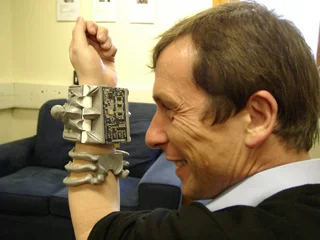Driverless Taxis
As of last month we now live in a world with driverless taxis. Uber announced plans to introduce driverless cars early in the year, but they ended up beaten to it by an American run company in the business sector of Singapore called nuTomony. On the 18th August 2016 a few dozen of these taxis were launched and then Uber responded a week later with a similar sized fleet in Pittsburg. The cars in both enterprises were retrofitted with the technology rather than being designed from scratch.
OK, some caveats on this: firstly this is just a trial to gain data for now. If you order am Uber in Pittsburg at the moment it will be a lottery as to whether you get one of these new cars, but if you are lucky and it is driverless then your journey is free. Upsettingly there will be an Uber driver sitting in the driving seat just in case, but once the trials are over and the insurance laws are updated for this new paradigm then they will be removed. I'm not sure this really diminishes the feat, it is still the car making the decisions.
There is actually a long history of this sort of precaution on the road to driverless cars. In 2015 a few driverless pods were launched in Milton Keynes and they had to have someone walk in front of them checking the path was clear (mostly of onlookers trying to look at the car). Similarly when the automobile was first released the Red Flag Act of 1865 limited these "horseless carriages" to have a maximum speed of 4 mph in the countryside and 2 mph in cities. A person was required to wave a red flag while walking out in front warding off people and horses. These early overly cautious steps eventually get removed.
The Milton Keynes Pods were limited to 15 mph
Driverless technology has come a long way over the last 5 years, in part due to heavy investment by Google. We have had these cars drive by themselves from coast to coast in the US and the accident rates are far lower than with humans driving. I know which I would charge a lower insurance premium on; humans famously make mistakes. I don’t think it unrealistic that we will see a major part of road traffic become driverless in the next ten years. The possibilities for car shares where the car takes itself to you when needed and so is in use for most of its time (as apposed to doing a half hour journey twice a day) make sense both in cost to user and in terms of congestion for parking.
Other than taxis the other low hanging fruit for driverless technology is for long haul transit. Having a diligent robot drive for 24 hours a day and not require paying is a very attractive deal and most of their routes are on uncomplicated straight freeways (assuming that it is America that gets there first). I find it very surprising that taxis have beaten them to it.








